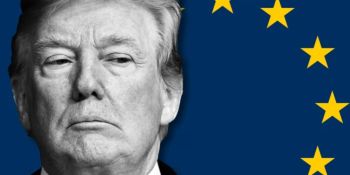-

Why is the boundary between a leader's professional and personal identity important?
2025/08/03/ 10:21 -

Three practical steps that will prevent you from losing the people who keep your business running
2025/08/01/ 17:17 -

IDBank's new premium business card – Mastercard Business Preferred
2025/08/01/ 12:45 -

Which professions will be the first to lose their jobs due to AI. Microsoft's warning
2025/07/31/ 14:21 -

Why do some organizations turn AI into a strength, while others fail?
2025/07/30/ 17:49 -

Gucci's management has changed against the backdrop of declining sales
2025/07/30/ 16:57 -

USA is exerting pressure to extract agreements
2025/07/30/ 14:36 -

The Armenian state budget has deviated from the course: what the analysis of the Luys Foundation says
2025/07/29/ 12:43 -

How does the Armenian economy respond to challenges? facts from the data for May-June
2025/07/28/ 12:40 -

Beating the heat, earning idcoins: Idram & IDBank
2025/07/25/ 17:36
 Subscribe
Subscribe

USA is exerting pressure to extract agreements
News |

Trump's new trade strategy. What impact will it have on the global economy?
US President Donald Trump has redefined the approach to global trade negotiations, paving the way for new agreements through strength.
His administration has employed a "carrot and stick" strategy, forcing several countries, including the UK, Japan, Indonesia, the Philippines, and Vietnam, to accept Washington's terms with the threat of high tariffs.
The recent agreement with the EU is also a result of this strategy. Under the agreement, most goods imported from the EU to the US, including cars, pharmaceuticals, and semiconductors, will now be subject to a 15% tariff. In return, imports from the US to the EU are exempt from additional tariffs, but the EU commits to spending hundreds of billions of dollars on American energy and weapons.
The EU as the losing side
Although the EU is one of the largest trading blocs in the world, which theoretically should have sufficient leverage to negotiate a balanced agreement, it found itself under pressure and made nearly complete concessions. With this agreement, the EU was only able to avoid higher tariffs of up to 30% and received modest discounts on 70 billion euros of trade.
Moreover, internal disagreements continue due to the ambiguity of the list of goods and exceptions. France, for example, is trying to clarify whether the provisions apply to wine and spirits, while the American side denies the existence of exceptions.
Trump's formula: pressure, negotiation, agreement
Trump's approach has the following simple scenario:
- Makes sharp demands to panic the market,
- Offers a short-term negotiation opportunity,
- Creates an atmosphere of pressure on vulnerable and retaliatory-averse partners,
- Presents the agreement as mutually beneficial, although significantly softened from the initial threat.
With this strategy, he has already covered more than 60% of US imports.
Consequences for the US and global economy
The short-term consequences of Trump's policies, although mitigated in some cases by resource availability and business adaptability, have already raised the average tariff levels in the US to their highest in the last 90 years. If tariff threats are implemented, that number could rise even further.
The IMF has already warned that trade uncertainty poses global economic risks. If Trump's plans continue without mitigation or delay, the impact will become more visible both in the US and in the international market.
Results: systemic changes and a new international reality
Trump's policies have already disrupted the rules-based global trading system. His administration has ignored multilateral agreements and violated the principle of "most favored nation" in free trade. All of this has led to a "panic world order," where countries' decisions depend not on politics, but on threats and time pressures.
Although the European Union has managed to avoid direct sharp blows, it has effectively accepted the US president's new, unilateral approach as the new rules of the global game.
Source: Financial Times
*the article also used data from the IMF












